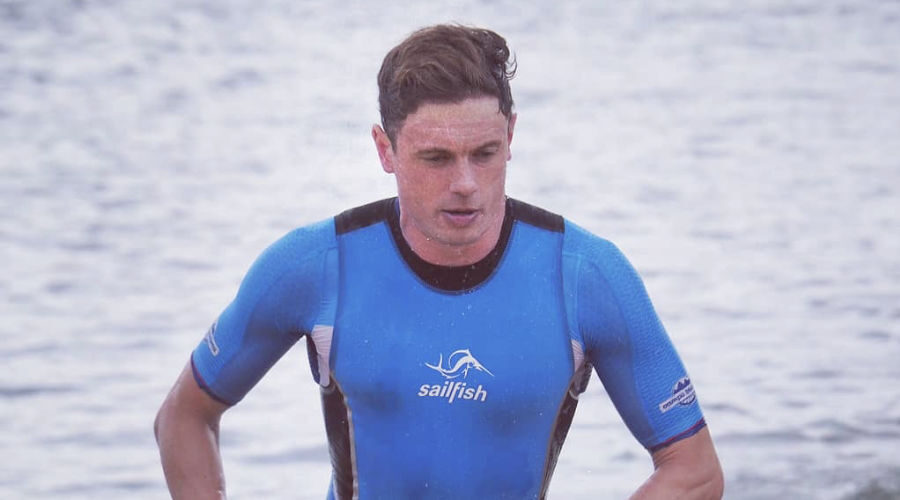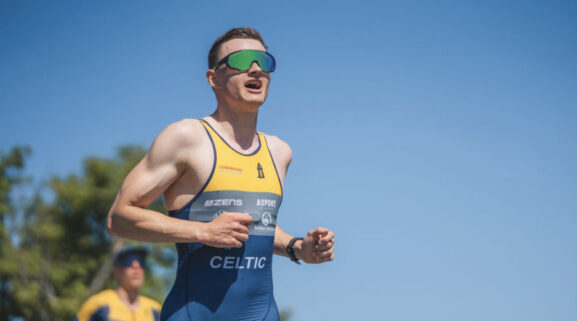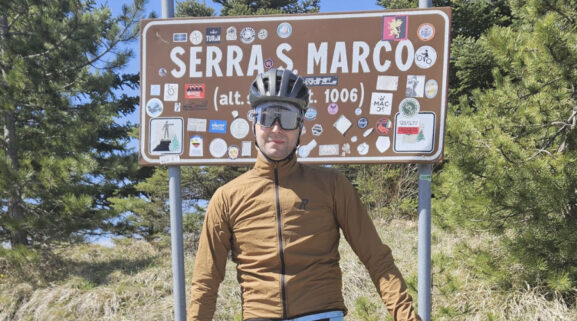7 Fragen an Triathlon-Coach Richard Westover
Hello Richard, please introduce yourself briefly.
I am a coach in triathlon and endurance sports and have been coaching for around 8 years now.
I’ve been involved in endurance sports for most of my life and have spent well over a decade as a professional triathlete.
I came from track & field and cross country running, to cyclo-cross and road cycling before finding my way to triathlon. After 3 years as an amateur and qualifying for Kona, I took my professional licence focusing primarily on middle distance triathlon, but I have raced across all distances from sprint to full ironman over the last 15 years.
Now I coach a small number of athletes who I really enjoy working with. My goal is to be able to offer a very personal approach and really coach the individual. My main motivation is for working closely with the athlete and helping them reach their potential while balancing the demands of everyday life.
Why did you become a triathlon coach?
Coaching started quite naturally for me — while still competing myself, I began helping friends with their training and specific areas that they wanted to progress, such as open water swimming, to see if it was something I’d enjoy as a potential future career. I found these to be rewarding experiences and it has developed and expanded from there.
During the additional downtime with the covid pandemic I began studying and educating myself to formalise becoming a coach, spent time speaking with established coaches, and took my first qualification with the British Triathlon Federation.
I have found that I have a very broad range of real-world experience in the sport to draw on, and this has been a major strength in being able to provide support and guidance in a range of situations for a variety of athletes.
What has been your best moment as a coach so far?
One of the most rewarding experiences I’ve had actually came very early on in my career, with an athlete who was starting from the very beginning and seeing them develop from not being able to put their face in the water to becoming a competitive triathlete, regularly finishing on the podium and confidently racing in open water, in all conditions.
I still remember the feeling on the pool deck that first session we did together, doubting my abilities, but I followed my instincts and surprised myself with the level of guidance and technical knowledge I could provide. It was a big motivation and validation for myself to pursue being a coach seriously.
This day to day process with athletes, guiding them through the difficult times and achieving breakthrough performances, is generally the most enjoyable part of coaching for me.
Do you have a specific target group of athletes you primarily work with?
In short, I work with athletes who are committed to their long term development. Where they currently are when they come to me however, is not important.
I coach athletes from a wide range of backgrounds and with a variety of goals in the sport, from complete beginners to seasoned racers.
What matters to me is their commitment to work on their craft. This doesn’t mean an expectation to dedicate their entire life to sport, because this is not healthy or sustainable. Just that there is the curiosity and willingness to progress.
My role is to understand each athlete, unlock their potential, and guide their development in a way that fits their individual circumstances.
How would you describe your coaching style?
Collaborative and adaptable.
If a new athlete asks me how I can help them, my honest answer is: “I don’t know yet.” Because I don’t know them yet — and I don’t offer generic training plans. Everything revolves around the individual: their goals, their needs, and their life and circumstances.
Many training methodologies are often seen as clear cut, competing systems to choose from. In reality, each is full of nuance and their effectiveness depends on the individual athlete’s background, physiology and stage of development. The real art of coaching is recognising these nuances, and those of the athlete, knowing when to emphasise different approaches based on what they truly need, rather than forcing them into a fixed model.
Consistency is of course the foundation of progress, but actually achieving true consistency looks different for every athlete. This requires a deep understanding not just of training principles, but of the individual — how they respond, what motivates them, and what allows them to sustain training over weeks, months, and years. This understanding informs every decision we make together and guides how we refine the plan as we progress.
That’s why collaboration and adaptability are at the core of my approach. The aim is to get the most out of each day — whatever that day brings.
What do you tell new athletes in your initial introductory meeting?
My first priority is simply to get to know them, what drives them, what they enjoy and their ambitions. From there, I can start to see how I can best support them.
I explain that this is a partnership. We are working closely together, with regular feedback and communication in both directions, continually refining their plan based on what is really happening.
To make real, lasting progress, I need a deep understanding of the athlete so I can provide the right support and guidance for them as an individual. I’m not just going to write a plan and leave them to follow it — my role is to find the right path and take them on that journey.
We work together to ensure that the training is effective in providing the correct stimulus at the correct time, is enjoyable for them to be able to follow consistently and offers the variety needed to develop into a strong, well-rounded and adaptable athlete.
What tools, methods, or gadgets do you use with your athletes?
I use the TrainingPeaks app to plan and record training and it also forms part of the communication with athletes, but beyond that I try to limit the requirements on gadgets that the athlete is required to have. Generally we work with whatever we have available.
Communication is key and usually takes the form of regular messages over WhatsApp, speaking on the phone, meeting up to chat over coffee or doing a training session together.
The amount of contact naturally varies through the season, but there is always an ongoing dialogue. This allows me to keep refining their plan and ensure that we are heading in the right direction.
One exception that you might like to know, is that I do ask every athlete to have a swim snorkel, because it’s such a simple and effective tool.



